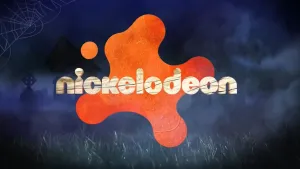
GDC had a substantial effect on Uncharted 4, but not in the way you might think.
Videos by ComicBook.com
It was at GDC 2015 (via Kotaku) that Naughty Dog UI Designer Alexandria Neonakis met Josh Straub, Editor-in-Chief of D.A.G.E.R, which stands for Disabled Accessibility for Gaming Entertainment Rating System. Straub’s website reviews games based not only on their mechanics and replay value but also on how the game handles being played by someone who is disabled.
Straub had requested the meeting to talk about the Uncharted series, and how a QTE sequence that required quick mashes of the buttons towards the end of the game kept him from completing it.
“I was faced with the reality that I had played this entire game. I had spent $60 on it, and I could not get any further without the help of an able-bodied person.”
That led to him starting D.A.G.E.R, and he shared a bit more about what kind of effect that accessibility options in games can have on people.
“Growing up, my options for entertainment were limited. What developers need to realize is that these games do more than just entertaining the disabled. Fist of all, they provide an escape from the sort of doldrums of being disabled. And second of all, they provide a social space where, instead of being judged by physical appearance, we are purely judged by the actions that we do and the things that we produce in the game.”
Neonakis took his words to heart, and teamed up with several other Naughty Dog employees, including Emilia Schatz (Lead Game Designer) and Andres Ortiz (UI Scripter) to implement some additional options that would allow someone to not face the same issues that Straub did. These included tweaking the possible control schemes so that a person would only have to use one of the control sticks when aiming or going into cover. It also resulted in an option to hold the face buttons down, which reads as hitting it multiple times, so that QTE’s and even melee combat could be executed without mashing the buttons.
Kevin Keeker, Principal User Experience Researcher for Playstation said: “I think video games for a lot of people are often about being able to do things that you wouldn’t normally be able to do, experience great adventures. And so when you find that there are some people who can’t enjoy those things, it’s kind of crushing.”
Ortiz also addressed an issue he personally deals with, that of being colorblind. He recounts he had a hard time distinguish between the red and green teams in multiplayer. “So I asked them ‘can I just change it from red to blue?’, and I went ahead and changed it in code, and nobody ever questioned it.”

As a result, Uncharted 4 has hit new heights in allowing as many people into its fantastic world as possible. Straub concluded: “When I turn on a game like Uncharted, I’m not confined to a wheelchair. I’m a swashbuckling ne’er-do-well treasure hunter like Nathan Drake. “That brief period of escape is why accessibility is so crucial. Because the more games that offer that, the more people with disabilities will be able to escape and have better lives.”
Games are a welcome respite from everyday life, and the more barriers they demolish, the more people get to experience this amazing platform.








